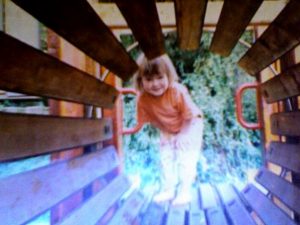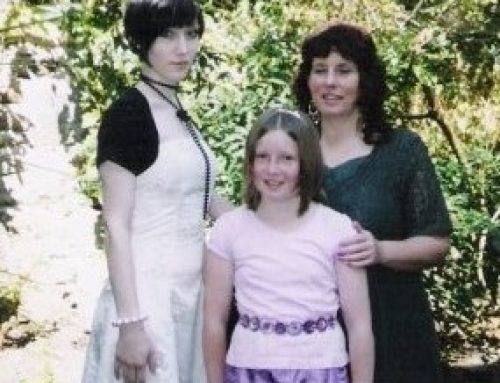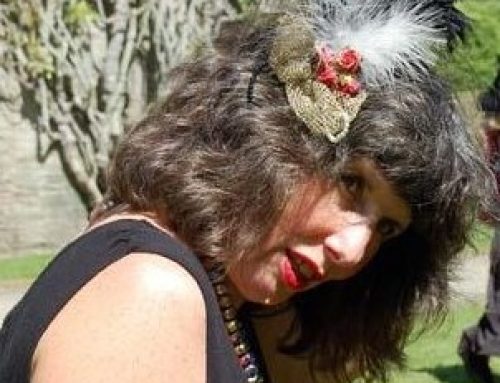This post is a celebration, a culmination, a letting go and a re-commitment. It is a story I need to tell, and I hope it will resonate with others, and inspire them, There is a condensed version if you’d prefer.
 What a month it’s been! Two weeks ago my daughter Fenna was notified that she has achieved a 2:1 degree in Psychology. The next day she learned that she has also been successful in her first ever “proper” job application. She aced her very first interview and will start her “dream job” in a few weeks time, working for an innovative children’s charity and further studying to be a child psychotherapist.
What a month it’s been! Two weeks ago my daughter Fenna was notified that she has achieved a 2:1 degree in Psychology. The next day she learned that she has also been successful in her first ever “proper” job application. She aced her very first interview and will start her “dream job” in a few weeks time, working for an innovative children’s charity and further studying to be a child psychotherapist.
Fenna has Dyslexia, Dyspraxia and Attention Deficit Disorder/ADHD (inattentive type) – a neurodiverse hat-trick she inherited from me. She did not fit in to the conventional education system, and acquired a number of further, informal, labels during her school career.

Yesterday I was a guest speaker at a conference in Birmingham, organised jointly by the CoEd Foundation and Birmingham Governors’ Network. Its subject – Compassion in Education – is close to my heart for many reasons. Fenna is just one of those.
I have worked with people affected by neurodiversity for many years, within the education system, through a charity and independently via my own enterprise, Dystinctive Learning. I have supported children, parents, adults and young people, campaigned, spoken at conferences and trained professionals. Even when this has not been my main career focus, it has never receded far into the background. It is not possible to work with groups, particularly vulnerable ones, without encountering unconventional learners, who often don’t understand why their lives have been so fraught with challenges.
My own experience of education was a miserable one. In the 1960s Specific Learning Differences were still largely unrecognised, and my inability to fit in, keep up or achieve what was expected of me was a much-punished mystery. I was 42 when I received a formal diagnosis of dyslexia, and already working in the field. My advanced literacy skills had masked the condition most effectively. Further diagnoses of dyspraxia and ADD came in my early fifties.
Fenna
 As a small child, Fenna was confident, creative and endlessly curious. Soon after she started school, all that began to change. Her self-esteem plummeted, replaced by growing anxiety. She was privately assessed for dyslexia at age eight, and between the ages of nine and ten-and-a-half I home-educated her. Together we explored the wonderful way her brain worked. We devised creative strategies to help her learn and retain information, and as she discovered more about the way she learned, she grew in confidence and ability.
As a small child, Fenna was confident, creative and endlessly curious. Soon after she started school, all that began to change. Her self-esteem plummeted, replaced by growing anxiety. She was privately assessed for dyslexia at age eight, and between the ages of nine and ten-and-a-half I home-educated her. Together we explored the wonderful way her brain worked. We devised creative strategies to help her learn and retain information, and as she discovered more about the way she learned, she grew in confidence and ability.
She returned to school during year six, well able to keep up, and better equipped for the years to follow.
Still, secondary school was challenging for Fenna. Understanding how she learned made the inaccessibility of most of her lessons more frustrating and there were confrontations that earned her a reputation as a trouble-maker with some teachers. A few more visionary souls recognised her strengths, and sought to support and inspire her, but they rarely stayed in her life for long. Her music teacher “had her back”, encouraging and shielding her, for which I will always be grateful.
 Six years ago my mother passed away, slowly and traumatically, after suffering a major stroke. This occurred at the time of Fenna’s GCSE exams. Fenna loved her grandmother. She was terribly anxious about the impending exams. The build-up to GCSEs had been brutal for her, as her teachers’ attempts to motivate her to study in ways that were not congruent with her alternative styles of learning piled on pressure so counter-productive to the desired outcome that, from the outside, it looked very much like relentless bullying.
Six years ago my mother passed away, slowly and traumatically, after suffering a major stroke. This occurred at the time of Fenna’s GCSE exams. Fenna loved her grandmother. She was terribly anxious about the impending exams. The build-up to GCSEs had been brutal for her, as her teachers’ attempts to motivate her to study in ways that were not congruent with her alternative styles of learning piled on pressure so counter-productive to the desired outcome that, from the outside, it looked very much like relentless bullying.
I have sympathy for those teaching staff. The pressure they were under to force results required by the school to achieve its next Ofsted status could not help but affect their engagement with their pupils. They did not understand Fenna’s needs because they had not received adequate training on the complex spectrum of Specific Learning Difficulties. It had probably never occurred to them that this label for a collection of “disorders” modelled by earlier low-achieving pupils such as Albert Einstein, Agatha Christie, Thomas Edison and Erin Brokovich, is insulting, disempowering and not very accurate.

Perhaps if they had learned, as a priority, that at least ten percent of the young people they would teach would be dyslexic, with talents and abilities that, if identified and nurtured, could far outweigh their (generally very manageable) challenges, they would have given this some thought. Perhaps if they had been encouraged to refer to diverse ways of learning and responding as variations, rather than disorders, Specific Learning Differences, not Difficulties, they might have welcomed the exciting challenge of creatively engaging and inspiring a child who does not fit the same old, same old profile. Perhaps if compassion, along with open-minded curiosity and good old-fashioned, all-round respect were at the top of the curriculum in our poor, overwhelmed and broken education system, its servants would be more fulfilled. And my daughter and the countless other young people who don’t fit its narrow perimeters would not have grown up being told, explicitly and implicitly, that they are “less than” their more conventional peers, and will never be normal, valuable or successful in society’s eyes, and internalised this as truth.

The Collins dictionary defines dys as a prefix meaning “diseased, abnormal or faulty”. Every time this term is applied to a human being, they take it on a little more.
A heavy load to carry throughout life.
Fenna and I had a plan for her GSCE period. I knew it would be difficult for her. The Equality Act 2010, confirming dyslexia as a disability, acknowledges that when a dyslexic individual is placed under stress, they may lose their ability to manage their “impairment”. Exams are the most stressful thing in the world for many dyslexics. At the time when they most need to be clear, focused and effective, they are least likely to be able to achieve this state. Sadly, I knew this would not be recognised, much less addressed, by Fenna’s similarly stressed teachers, so she and I spent time preparing for the most relaxed, enjoyable and supported (by me) holistic experience possible for her during that phase.
Then my mother had the stroke. I had no choice but to travel the 300 miles to her home, and stay with her until she passed away, five weeks later. This period almost exactly spanned the duration of Fenna’s GCSEs. She remained with her father, who didn’t live with us, but was a supportive constant in our lives. He would take care of the practicalities. But he wasn’t prepared for the stress-limitation I had planned.
 Now, in addition to the pressure of vital exams, Fenna had to cope with a change of environment, my absence, and the slow, heart-breaking demise of her beloved grandmother. She travelled to join us for a weekend, when she should have been relaxing and revising, to say a final goodbye, distressed that she could not stay with the rest of the close family as we cared for my mother, and each other. Three weeks later she came again, for the funeral, which we had arranged for a day that fell between exams.
Now, in addition to the pressure of vital exams, Fenna had to cope with a change of environment, my absence, and the slow, heart-breaking demise of her beloved grandmother. She travelled to join us for a weekend, when she should have been relaxing and revising, to say a final goodbye, distressed that she could not stay with the rest of the close family as we cared for my mother, and each other. Three weeks later she came again, for the funeral, which we had arranged for a day that fell between exams.
I spoke to Fenna’s head teacher, whom I liked very much, and several other staff, and was satisfied that she would be treated with compassion and supported as much as possible through this entire process. However, her long experience of being ostracised for her inability to be “a better pupil” prevented any sense of sudden security at this late juncture.
To her eternal credit, Fenna achieved 12 GCEs or equivalent, all grade C except for a D in maths, which she had always struggled with (forseeing this even before my mother’s illness, we had agreed she would take Level Two Functional Skills Maths at college; an alternative that would be more suited to her way of learning). I couldn’t have been more proud of her and when, weeks later, we went together to the local sixth form college to register her for the A levels she’d applied to do, we were both excited about this brand new chapter.
The director of the college sat us down. I knew him as we had been governors together at the school Fenna had just left. He looked briefly at Fenna, then at the papers in front of him. He did not make eye contact as he told her she would not be registering for Psychology A level, because her grades weren’t good enough. He suggested she do a BTEC Diploma in Art and Design. A levels would probably be too much for her and he “didn’t want to set her up to fail”.
We had expected some resistance due to the situation with her maths, and were prepared for that. But no, he said, her grades just generally didn’t cut the mustard.
 All Fenna had ever wanted to study was psychology. The subject fascinated her, and she intended to be a therapist, working with people who had experienced trauma. She had been volunteering in various supportive roles from an early age, initially assisting with my workshops and events for children with dyslexia and additional needs, and later graduating to other organisations, where she consistently excelled. Her communication skills and emotional intelligence were advanced, as is common with dyslexic individuals who have not been too ground-down. The BTEC held no interest for her. She explained this to the director, over and over, and each time he knocked her back a little harder.
All Fenna had ever wanted to study was psychology. The subject fascinated her, and she intended to be a therapist, working with people who had experienced trauma. She had been volunteering in various supportive roles from an early age, initially assisting with my workshops and events for children with dyslexia and additional needs, and later graduating to other organisations, where she consistently excelled. Her communication skills and emotional intelligence were advanced, as is common with dyslexic individuals who have not been too ground-down. The BTEC held no interest for her. She explained this to the director, over and over, and each time he knocked her back a little harder.
He remained unmoved as I pointed out that her achievement of 12 GCSE’s was extraordinary given the timing of my mother’s passing and Fenna’s disability under stress. She pleaded that she knew she would do well in psychology. It was her calling.
I remained quiet as Fenna argued her case eloquently and passionately, but I shook with anger, feeling my brave daughter gradually deflate beside me with each verbal rebuff.
Eventually I said we would find somewhere else for Fenna to do Psychology, and the director reluctantly conceded, saying he would allow her to try the subject, and if she couldn’t cope she could revert to the BTEC. Again he said he didn’t want to set her up to fail. I countered that the best method I had ever seen for setting someone up to fail was for the person in authority at her new, exciting college to repeatedly insist she wasn’t bright enough to achieve her dream.
To be clear, I understand that there are rules and procedures which are important for the smooth running of a college. But these are born of a system that leaves no space for those students who have great potential but cannot thrive according to the usual rules. When a dysleixic individual is enthusiastic about a subject the battle is half-won. Add good teaching and respect for that student’s individual way of learning and they can forge ahead. Failure in subjects that do not animate them is no guide to how they might succeed in those that do.
As we walked away after that interview, I began the rant I had been holding in. Fenna looked at me and calmly said “It’s OK, Mum, I’ll show him”.
And she did. When she achieved a B in her Psychology AS (she also passed Functional Skills Maths with a C just a few weeks into that course) I sought him out with her and told him. He emitted a curt, unsmiling “well done”. We didn’t bother to speak to him when we collected her A level results; an A in World Development AS (which she deeply regretted not doing as a full A level) and a B in Psychology. Along with good grades in A level Photography and Textiles, she was set for the Psychology degree she had applied for.
Sadly the next phase was far from plain sailing. The teaching at A level had been excellent. Rebecca (Psychology) and Rachel (World Development) had made every effort to understand Fenna’s learning styles and support her accordingly. They had recognised her ability, and brought these subjects to life for her. She couldn’t wait for further effervescent study.
 But university was a very different experience; All-day lectures, inaccessible to anyone with auditory, processing and memory challenges, tutors who referred her to a similarly inaccessible website if she asked for help. Fenna found the system impersonal, abstract and alien. She gleaned no enjoyment from the subject that had so excited her, but she persevered. She didn’t go to many of her lectures, because she couldn’t learn from them. They might as well have been in Russian, and they overloaded her to an extent that incapacitated her for days afterwards. She was penalised for this, despite explaining why it was her only option.
But university was a very different experience; All-day lectures, inaccessible to anyone with auditory, processing and memory challenges, tutors who referred her to a similarly inaccessible website if she asked for help. Fenna found the system impersonal, abstract and alien. She gleaned no enjoyment from the subject that had so excited her, but she persevered. She didn’t go to many of her lectures, because she couldn’t learn from them. They might as well have been in Russian, and they overloaded her to an extent that incapacitated her for days afterwards. She was penalised for this, despite explaining why it was her only option.
On one occasion, when she became desperate, Fenna asked me to accompany her to speak to a senior lecturer, who seemed genuinely sympathetic and said he would do his best to be supportive. He made an effort to positively engage with Fenna regularly from then on, encouraging her, and guiding her through her dissertation, for which she received a First.
Of course there could be no quick fix for Fenna. That university’s system needs to be transformed, to provide an inclusive learning experience for neurodiverse students who are paying an extraordinary sum for a service that cannot accommodate their needs. While some higher education establishments offer excellent support, sadly Fenna’s Alma Mater is not alone in its deficits, as this report shows and too many students end up feeling failures, with damaged self-esteem that can lead to debilitating mental health crises.
At the end of her second year, Fenna was on track for a third class degree. She decided to repeat the year, and aim for a 2:2. Her commitment, organisation and determination were awesome, but it cost her dearly.
Fortunately an insightful study skills tutor, funded by Disabled Student’s Allowance, as well as an expert from home, a valued friend and colleague of mine, gave Fenna the support to get her through. It was only in her final year, when she was finally able to study subjects that interested and engaged her, that Fenna began to enjoy her studies. This was reflected in her dissertation First, for a heartfelt and excellent piece of research on the concept of home for Somali refugees settling in the UK.
And now here we are. Another new stage. Last week Fenna and I celebrated the end of her formal education, an incredible relief for both of us!
 I have yet to contact the director of the college who told this talented young woman she could not achieve her dream, but I will. If Fenna had been crushed by his short-sightedness instead of determined to prove him wrong, not only might she now be living a frustrated life of limitation and lost hope, but the world would lack a potentially brilliant professional who will impact the lives of children in need of someone just like her.
I have yet to contact the director of the college who told this talented young woman she could not achieve her dream, but I will. If Fenna had been crushed by his short-sightedness instead of determined to prove him wrong, not only might she now be living a frustrated life of limitation and lost hope, but the world would lack a potentially brilliant professional who will impact the lives of children in need of someone just like her.
As I celebrate her achievements, I cannot help but think of all the children and young people, full of potential, talent and budding dreams, who are set to be failed by an education system that does not see them. The request to speak at yesterday’s conference was timely, and being surrounded by educators and governors committed to making our education system more compassionate and less standards-driven, most inspiring. It reminded me that there is still a battle to be won, not with vitriol and weapons, but with compassion, liberally peppered with righteous anger and determination.
Too many people of all ages are still being told, and internalising as fact, that they are little more than a collection of disorders, difficulties and words that start with dys (or dis). Allow me to turn the tables for a moment and apply some dys (and dis) words to a dysfunctional society and education system whose dystopian leaders cannot be allowed to carry on discriminating against complex, vulnerable and often brilliant children, young people and adults and dismissing them because their wonderful gifts and qualities do not fit the narrow limitations it deems valuable. Such people end up disheartened and dispirited. That is not acceptable. It is a disgrace.
My daughter has succeeded where she was predicted to fail. Nothing has been easy but many of the gifts associated with neurodiversity (and generally overlooked in favour of a focus on the negative) have served her well. She is happy for me to share her story in the hope that it will inspire other young people to persevere, and professionals to show compassion and respect to everyone, no matter how they learn.









Leave A Comment